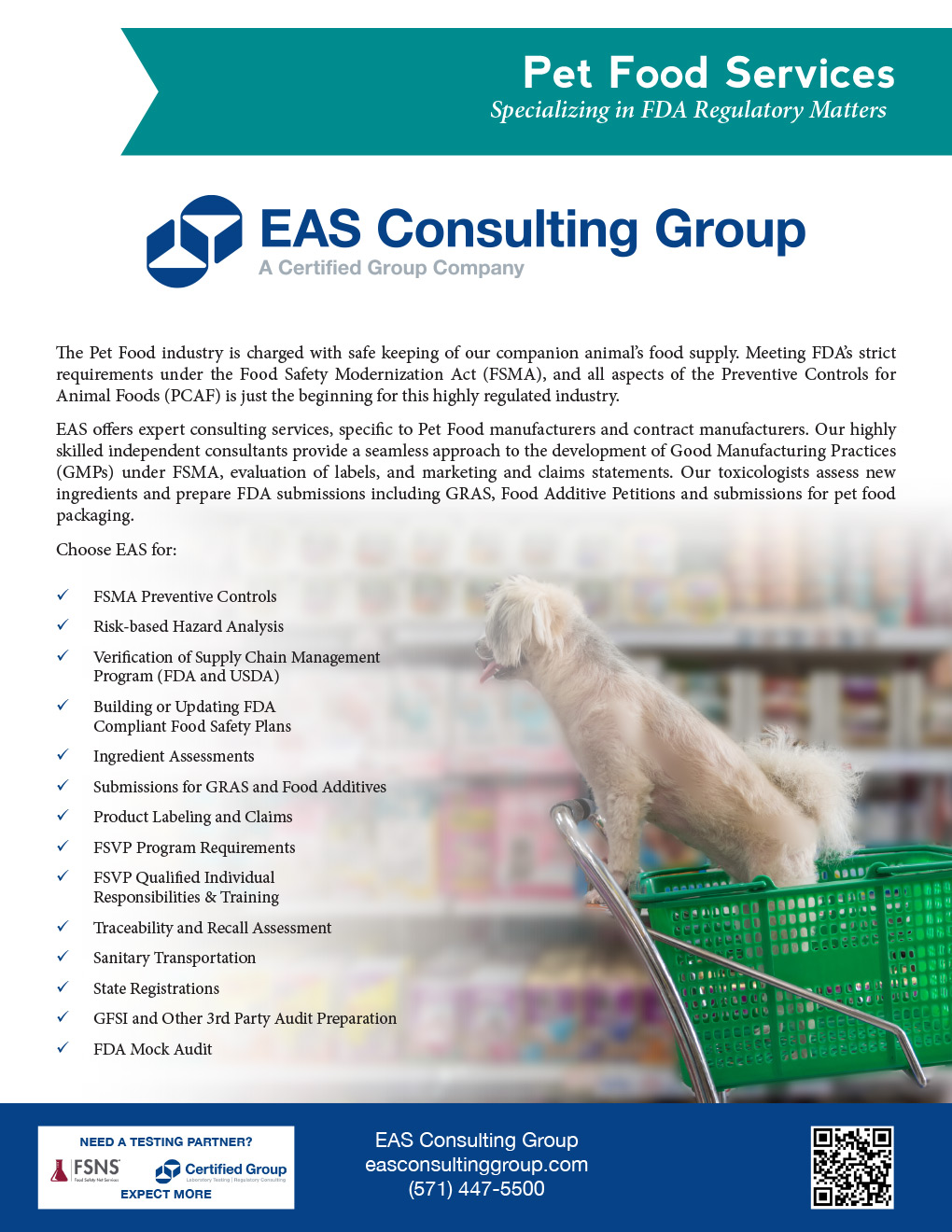Pet Supplement Industry on the Rise
By Tim Lombardo, EAS Senior Director for Food Consulting Services

Recent survey reports indicate that supplements for pets have reached US sales of nearly $3 billion, with dog and cat supplements comprising of approximately 75% and 20% of the total, respectively. The growing pet supplement market is aimed at pet health and wellness, particularly for issues like mobility, skin and coat health, and anxiety. Survey reports specifically indicate that hip and joint supplements are the most frequently type of supplement purchased.
The primary drivers for the growth in pet supplement include (1) Consumer Perception and (2) Marketing.
Consumer Perception
Human supplements are overwhelmingly considered very safe, and in some surveys, consumers place supplement safety above that of food safety. For pet owners, this perception of safety is then extended to pet supplements. Additionally, pets are increasingly viewed more as family members, resulting in a desire and willingness for pet owners to invest in their pet’s health. Further, veterinarians are more willing to recommend pet supplements to pet owners, adding an additional layer of “approval.”
Marketing
Online sales are outpacing traditional stores, with platforms like Amazon and Chewy leading the market. In-store purchases however remain significant, particularly in pet specialty stores and farm supply shops. The pet supplement market is expected to continue to grow, likely with an even greater shift to specialized supplements for senior pets.
While pet owner perception is that pet supplements are regulated the same as human supplements, it’s important to note that they are not. In 1994, the Dietary Supplement Health and Education Act (DSHEA) essentially created a special category for human dietary supplements, placing these products under the general umbrella of foods, and not drugs or food additives. Then in 1996, FDA further determined that DSHEA does not apply to products for use in animals. Therefore, products marketed as dietary supplements for animals are regulated as either food for animals or as animal drugs, depending on their composition of ingredients and intended use.
Animal Drugs
Animal drugs must be approved by FDA before a company can legally sell the drug. During this pre-market review, the agency evaluates information submitted by the company to make sure the drug is safe and effective for its intended use. FDA will also ensure that the drug is properly manufactured and adequately labeled and packaged.
Animal Food (to include supplements)
Unlike an animal drug, and with the exception of food additives, supplements (food) for animals do not require an FDA review to be legally marketed. Instead, food (supplements) for animals, like food for people, must be safe to eat, produced under sanitary conditions, free of harmful substances; and truthfully labeled.
EAS offers expert consulting services, specific to Pet Food manufacturers and contract manufacturers. Our highly skilled independent consultants provide a seamless approach to the development of Good Manufacturing Practices (GMPs) under FSMA, evaluation of labels, and marketing and claims statements. Our toxicologists assess new ingredients and prepare FDA submissions including GRAS, Food Additive Petitions and submissions for pet food packaging.
Posted in Foods, Issue of the Month, Veterinary.
